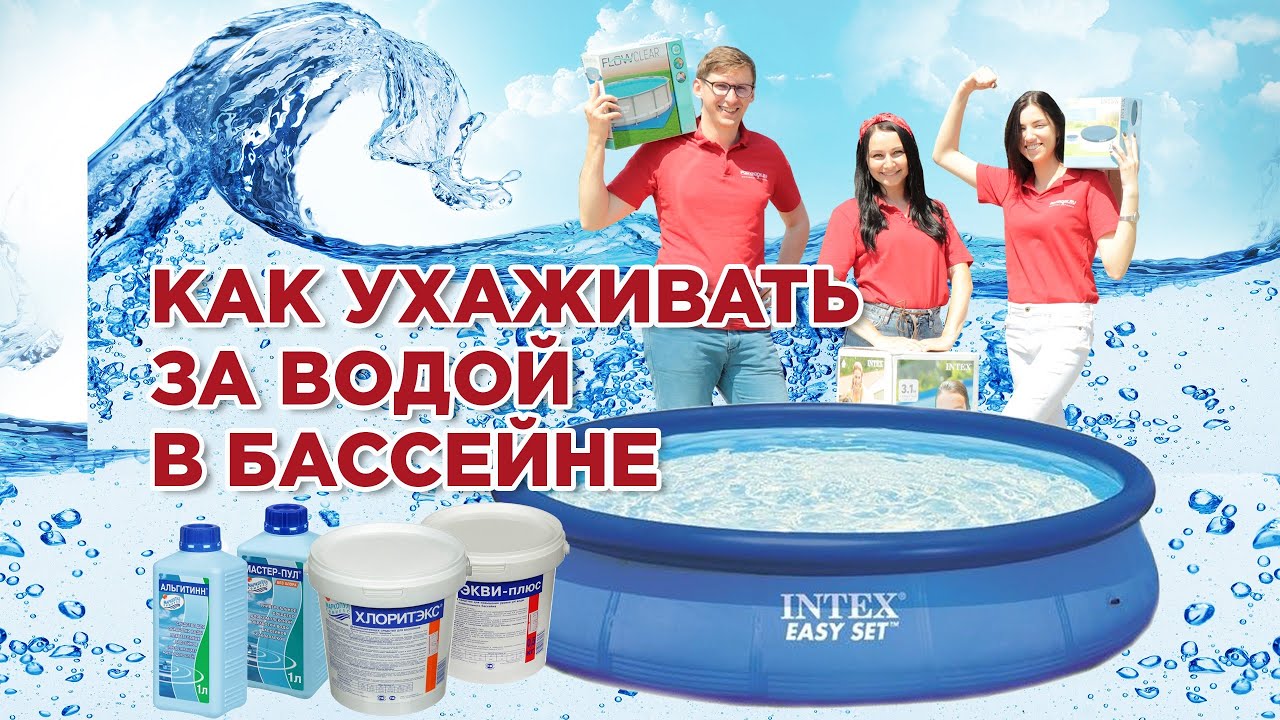
How to care for the water in the garden pool?
Content
Anyone who has ever dealt with a garden pool knows how difficult it is to keep the water clean. A layer of contaminants quickly appears on its surface. Fortunately, this problem can be dealt with. How to take care of the water in the pool?
Pollen, leaves, dead insects - all these unwanted "additives" quickly appear in the pool water. In addition, there are microorganisms that naturally exist in the aquatic environment. However, in the fight to keep pool water clean, you have many allies: filter pumps, fine debris screens and pool chemicals. Regular pool cleaning, water filtration, and the use of chemicals help keep the pool in good condition. If you remember to follow the most important rules, the water will stay clean longer.
Garden pool - how to care for the water?
First of all, you need to take care of the forced movement of water and its effective filtration. Use a filter pump for this purpose. It ensures the flow of water and filters out all the impurities that are in it. An efficient pump with a filter using, for example, quartz sand, provides a high level of water purification.
Efficient filter pump guarantees fresh and clean water
Other types of pool water filters are available: paper (for small models) and synthetic. When looking for the best home pool pump, pay attention to its performance. The pump should filter all the water in the pool four times a day. It is also a good idea to use a floating skimmer, which additionally filters the water from larger impurities.
How to take care of the pool and pool water? Regular removal of larger contaminants
When removing small impurities, often invisible to the naked eye, we must not forget about larger ones, which should be regularly removed from the water. The accumulation of various debris can cause the growth of microorganisms. As a result, this will lead to green and flowering water, as well as the formation of an unpleasant sediment on the bottom and walls of the tank.
Also ensure that users do not enter the water with grass or sand on their feet. A special washing machine offered by Intex will help you with this. Integrated with the steps, it will become an integral part of your bath preparation and will help keep the water clean.
Permanent removal of leaves and insects floating on the surface
Large floating elements are easily removed with a special mesh on a long handle or on a telescopic rod. In this way, you can catch leaves, grass and drowned insects. It is worth doing this regularly before they start to break.
Quick reaction to algae in the pool
The water in the pool is in constant contact with the air and heats up, and the tank in which it is located is usually shallow. This stagnant water is a great breeding ground for algae, which you'll quickly become aware of if you don't clean and sanitize your pool on a regular basis. As soon as you notice sporadic algae in your garden pool, remove them regularly. Once they have permanently settled in the aquatic environment, it is extremely difficult to effectively get rid of them. Also remember that it is good to replace about 5% of the pool water with fresh water every few days. This action will help prevent the invasion of unwanted microorganisms.
Regular cleaning of the bottom and walls of the pool
It is good to clean the bottom and walls of the pool with special vacuum cleaners for pools connected to the pump. The suctioned water is filtered and purified from impurities. In this simple way, you can effectively get rid of deposits on the surface of the pool.
Pool cover prevents pollution
Also remember to cover the pool when no one is using it. Thanks to this, you will prevent insects and various other contaminants from getting into it. In addition, you protect the water from excessive cooling or heating.
Use of chemistry
The purity of the water in the pool is also achieved through appropriate chemicals. Chlorine in special tablets effectively fights biological contaminants that appear in the pool over time. What's more, chlorination purifies the water and prevents unpleasant odors from the water. Special dispensers are available to facilitate this process. It is also worth investing in a device to measure the level of chlorine in the water.
If you do not want or for some reason cannot use this substance, an interesting alternative is to buy a special device for ozonizing water. This solution is somewhat better for the natural environment. The use of an ozonator does not cause skin irritation, which sometimes occurs after contact with chlorinated water.
Using filtration, regularly removing coarse dirt, and using chemicals as needed - these three basic steps will help keep your pool water fresh. See for yourself how easy it is.
:
